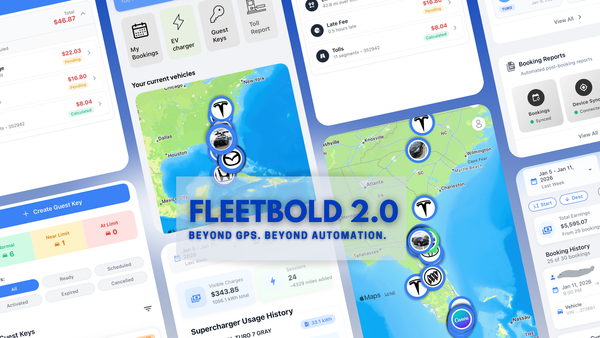Hertz AI Damage Scandal Drives More Renters to Turo
Hertz’s controversial use of AI scanners to detect microscopic vehicle damage has sparked backlash. For Turo Hosts, this marks a golden opportunity to welcome frustrated renters seeking a more transparent alternative.

How Hertz’s AI Damage Policy May Drive More Customers to Turo
Hertz has ignited a firestorm of controversy with its rollout of AI-powered scanners designed to detect vehicle damage even minor scuffs or scratches barely visible to the human eye. While the technology was intended to modernize rental checkouts, the rollout has backfired. And Turo Hosts should be paying attention.
What Happened with Hertz’s AI Damage Scanners?
In early 2025, Hertz deployed UVeye AI scanners at Atlanta’s airport with plans to expand to over 100 U.S. locations. The goal: automate the damage detection process and speed up returns. But the execution has left customers fuming.
Reports surfaced of customers being charged over $400 for 1-inch scratches, with added fees for processing and administration. Worse, the disputes were often handled via automated systems with limited human interaction. Customers had little recourse and a tight 5-day window to dispute or pay.
Online forums, Reddit threads, and even news outlets exploded with frustrated stories from renters feeling cornered and unfairly penalized. Some have vowed never to rent from Hertz again.
Why This Matters for Turo Hosts
This growing mistrust in traditional rental agencies creates a major opportunity for independent Turo Hosts especially those using advanced tools like FleetBold.
Here’s how to capitalize on it:
1. Offer Transparency They Can See
FleetBold allows you to document every vehicle’s condition before and after the trip with high-resolution timestamped photos and telematics. That way, guests know you’re being fair and if a dispute arises, you have proof.
2. Show You’re Human
Unlike big corporations with automated responses, Turo Hosts can message guests directly. Use that to your advantage. A simple text explaining how damage claims are handled can set you apart from the cold, robotic process of legacy rentals.
3. Use Real-Time Alerts
With FleetBold’s damage reports, speeding alerts, and trip histories, you’re not just tracking incidents you’re proactively protecting your fleet. Let guests know that safety and clarity come first.
4. Be Clear About Damage Policies
Make your policies accessible. For example: “Minor surface scuffs under 2 inches are not considered damage.” This builds trust from the start and avoids surprises.
5. Market the Difference
When listing your vehicle, highlight these features:
- Transparent damage reports
- Direct Host communication
- No AI scanners penalizing guests unfairly
- Human-first support
Case Example: FleetBold in Action
A Miami-based Host reported saving over $600 in avoided disputes after implementing FleetBold’s automatic pre/post trip image capture and late return notifications. Guests have even left 5-star reviews citing “honest and stress-free damage handling.”
Conclusion: The Future of Rentals Is Transparent
As major rental companies tighten policies and automate their damage systems, more renters will seek alternatives where they feel respected and informed. Turo Hosts especially those using tools like FleetBold are in a prime position to catch the wave.
This isn’t just about offering an alternative to Hertz. It’s about building a rental ecosystem that values fairness, clarity, and trust.
FAQ
Why are renters upset with Hertz right now?
Because Hertz is using AI scanners that detect very minor damage and auto-generate costly repair charges, often without a chance for guests to speak with a human.
What’s the benefit of renting through Turo instead?
Turo allows direct communication with the Host, who can offer a more transparent and personal experience often with clearer damage policies.
Can I mention the Hertz AI policy in my Turo listing?
No, Turo prohibits referencing competitors directly. But you can describe your process as “human-first” or “fully transparent no AI scanner surprises.”





